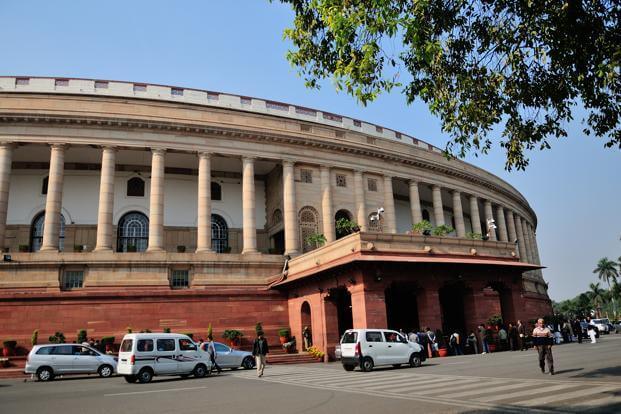 We sometimes read news about lapsed bills with respect to the Indian Parliament as well as State Legislatures. But when does a bill lapse? Normally, bills lapse in connection with the dissolution of the Lok Sabha or the State Legislative Assembly. But there are multiple sub-cases regarding this. In this post, we discuss the different cases of lapsing of bills in detail.
We sometimes read news about lapsed bills with respect to the Indian Parliament as well as State Legislatures. But when does a bill lapse? Normally, bills lapse in connection with the dissolution of the Lok Sabha or the State Legislative Assembly. But there are multiple sub-cases regarding this. In this post, we discuss the different cases of lapsing of bills in detail.
When Does a Bill Lapse in Indian Parliament?
Please remember that only the Lok Sabha and the Legislative Assemblies are subject to dissolution (and there is no dissolution for the Rajya Sabha and State Legislative Council).
When the Lok Sabha is dissolved, all business including bills, motions, resolutions, notices, petitions and so on pending before it or its committees lapse. They must be reintroduced in the newly constituted Lok Sabha to be pursued further. Articles 107 and 108 of the Indian Constitution deal with these provisions. The position with respect to the lapsing of bills is as follows:

Cases when a bill lapses:
- A bill originated in the Lok Sabha but is pending in the Lok Sabha – lapses.
- A bill originated and passed by the Rajya Sabha but is pending in Lok Sabha – lapses.
- A bill originated and passed by the Lok Sabha but is pending in the Rajya Sabha – lapses.
- A bill originated in the Rajya Sabha and returned to that House by the Lok Sabha with amendments and still pending in the Rajaya Sabha on the date of the dissolution of Lok Sabha- lapses.
Cases when a bill does not lapse:
- A bill pending in the Rajya Sabha but not passed by the Lok Sabha does not lapse.
- If the president has notified the holding of a joint sitting before the dissolution of Lok Sabha, does not lapse.
- A bill passed by both Houses but pending assent of the president does not lapse.
- A bill passed by both Houses but returned by the president for reconsideration by the Rajya Sabha does
not lapse. - Some pending bills and all pending assurances that are to be examined by the Committee on Government Assurances do not lapse on the dissolution of the Lok Sabha.
When Does a Bill Lapse in the State Legislative Assembly?
The legislative council, being a permanent house, is not subject to dissolution. Only the legislative assembly is subject to dissolution. The position with respect to the lapsing of bills on the dissolution of the assembly is mentioned below:
Cases when a bill lapses:
- A bill originated in the Assembly but is pending in the Assembly – lapses.
- A bill originated and passed by the Council but is pending in Assembly – lapses.
- A bill originated and passed by the Assembly but is pending in the Council – lapses.
Cases when a bill does not lapse:
- A bill pending in the Council but not passed by the Assembly does not lapse.
- A bill passed by one or both Houses but pending assent of the Governor does not lapse.
- A bill passed by one or both Houses but returned by the president for reconsideration by the Council does not lapse.
Points to note
- Adjournment (of a sitting) does not affect the bills or any other business pending before the House and the same can be resumed when the House meets again.
- Prorogation (of a session) does not affect the bills or any other business pending before the House. However, all pending notices (other than those for introducing bills) lapse on prorogation and fresh notices have to be given for the next session.
- When Lok Sabha is dissolved, all business including bills, motions, resolutions, notices, petitions
and so on pending before it or its committees lapse. - A bill becomes an act only after passing through various legislative stages.
- 68 bills lapsed at the end of the 15th Lok Sabha. Examples include – (1) The Constitution (108th Amendment) Bill to reserve 50 per cent of seats in Parliament and the legislatures for women. (2) The Constitution (110th Amendment) Bill for reserving half the seats in panchayats for women. (3) The Constitution (112th Amendment) Bill reserving one-third of elected seats in municipalities for women.






realy soo much benifit who are the aspirants…in civil services
@Darshan: Appreciate the feedback. Thanks.
Really good content for reading thank you
I didn’t understood anything..
@Bhawna: Appreciate the frankness 🙂 It happens. We wrote on this topic as this is one of the most confusing topics in Polity. Please let us know if we can explain/clarify anything.
What does the term ‘pending’ denotes ? Is it the particular duration or upto the period the LS dissolves??
Very well defined.. lapses bills and does not lapses bills.. thank you
“A bill lapse”..what does this mean?
Simply it means a bill expires…
its interesting , i enjoyed it a lot.
very good notes for a fresher to understand things.
Thanks
Hi ClearIAS,
Pl. clarify on the following issue in your article:
“Cases when a bill does not lapse:
A bill pending in the Rajya Sabha but not passed by the Lok Sabha does not lapse.”
Will the above condition prevail if the bill is introduced in either house of the Parliament or does it talk only about the bills introduced in the Loksabha ?
TIA,
Revanth
very well define and easy to understand…. seriously , I’m fully satisfied with that kind of information which is given by u… and thnx!!!
does it has any timelines for pending? after what time it will lapse once you introduce the bill
It is good platform for Who really want to track ups.I would like to tell who is preparing Exam for 2018 that any one can clear upsc with the help of clear ias.
UPSC INSPIRATION,
Dharmendra
Are all the amendments result after a passed bill? Or lapsed bill also given as amendments. Pls explain
please explain the term ‘lapse of the government’
After a bill is passed by the Lok Sabha, how long can it be kept before introducing it in the Rajya Sabha
Can you please explain Point #2 under Points to note? Thank you.
Minimam wages code bill 2017 kab tak hoga
Taking the reference from lapping of bill in a state legislate in case of dissolution of the house, there is the condition that –
– if a bill passed by assembly or passed by both the houses (bi cameral state) but returned by the president for reconsideration of the house doesn’t lapse.
Now the question is – What will happen in case if Governor returns the bill for reconsideration.
Hello sir.I have a doubt.Bill originated and passed by rajya sabha but pending in loksabha lapse …how?
Even I have not been able to comprehend this part. What is “A bill pending in the Rajya Sabha but no passed by the Lok Sabha” mean?